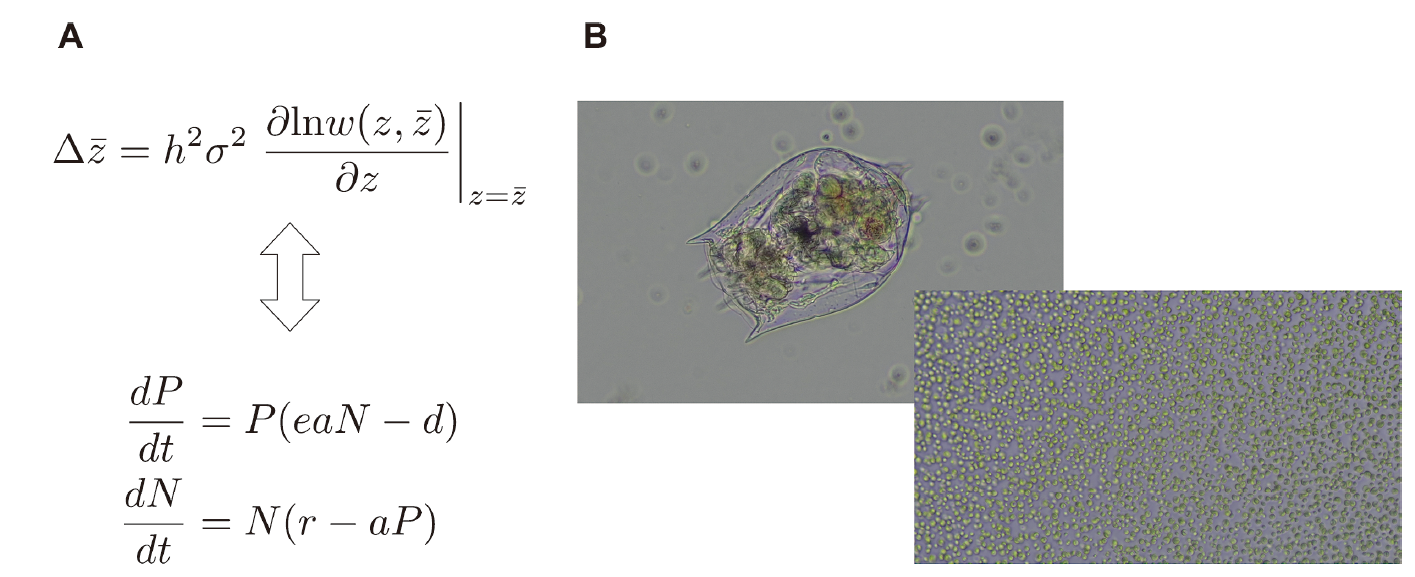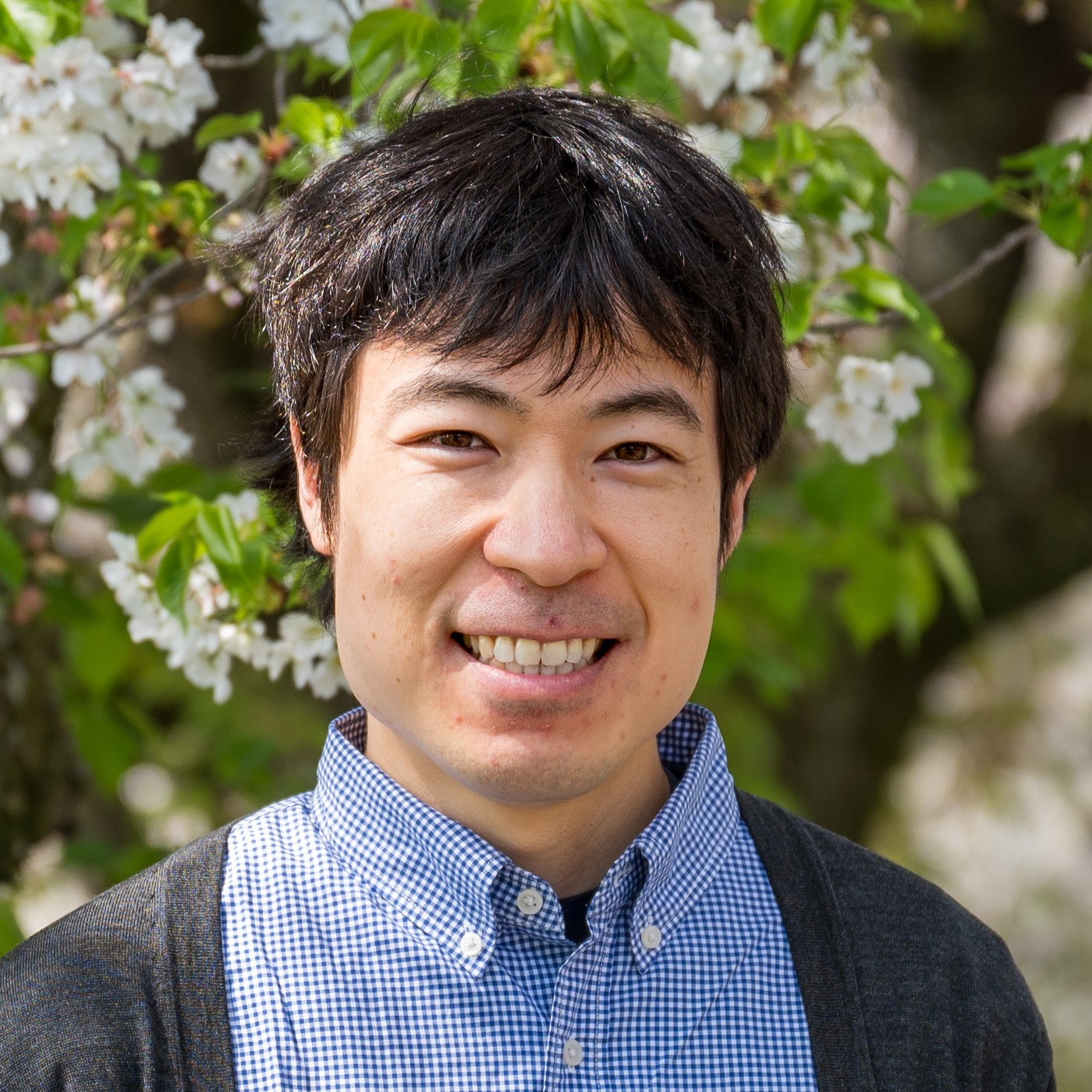Yamamichi Group • Theoretical Ecology and Evolution Laboratory
Eco-evolutionary dynamics: interactions of rapid evolution and ecological processes
Faculty
Research Summary
Organisms modify their phenotypes flexibly in response to environmental changes. Such rapid adaptation to environments can prevent population decline and extinction. Our laboratory combines mathematical models, microcosm experiments, and meta-analyses to investigate the effects of rapid evolution and phenotypic plasticity on population and community dynamics as well as complex eco-evolutionary feedbacks. Our aim is revealing dynamics of biodiversity through exploring interactions and similarities between intraspecific genetic diversity and species diversity in biological communities.

Selected Publications
Morita K, Yamamichi M. Character displacement or priority effects: immigration timing can affect community assembly with rapid evolution. Proc Biol Sci. 2024 Nov;291(2035):20242145.
Ito H, Yamamichi M. A complete classification of evolutionary games with environmental feedback. PNAS Nexus. 2024 Oct 10;3(11):pgae455.
Yamamichi M, Letten AD, Schreiber SJ. Eco-evolutionary maintenance of diversity in fluctuating environments. Ecol Lett. 2023 Sep;26 Suppl 1:S152-S167.
Yamamichi M, Gibbs T, Levine JM. Integrating eco-evolutionary dynamics and modern coexistence theory. Ecol Lett. 2022 Oct;25(10):2091-2106.
















